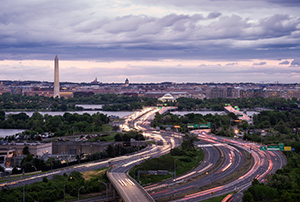Menu
A D.C. Court Found a Sales Tax Exemption Violated the U.S. Constitution: Is Your Nonprofit Entitled to a Refund?
by Kevin M. Serafino, Esq., Associate
Tenenbaum Law Group PLLC
May 29, 2025
May 29, 2025
On February 13, 2024, the District of Columbia Superior Court issued a ruling that could entitle 501(c)(3) tax-exempt nonprofit organizations with offices outside the District to refunds of certain taxes collected for meetings held in D.C.
In a class action lawsuit, American Philosophical Association v. District of Columbia (2019 CVT 000003), the court ruled that a D.C. law prohibiting nonprofits with offices outside of D.C. from applying for exemption from sales and hotel occupancy taxes was unconstitutional, in violation of the Commerce Clause of the U.S. Constitution. The Commerce Clause, in part, prohibits states (including the District of Columbia) from enacting states regulating interstate commerce that discriminate against out-of-state entities.
Nonprofit organizations from around the country hold meetings, conventions, and other events in the District of Columbia every year. Although D.C.-based nonprofits may apply for exemption from sales and hotel taxes payable to vendors, non-D.C. resident organizations are ineligible for the tax exemption under D.C. law. In holding that D.C. law unconstitutional, the court also found that those organizations outside of D.C. that paid sales and hotel occupancy taxes may be eligible for a refund of some or all of those taxes paid to certain hotels.
The information below describes general eligibility requirements, and the process for submitting a claim to the District of Columbia.
Who is eligible?
501(c)(3) tax-exempt nonprofit organizations with offices outside the District of Columbia may be eligible for a refund if i) the organization held an event at one of 18 hotels in the District of Columbia between December 12, 2016 and the present; ii) the organization paid D.C. sales or hotel occupancy taxes in connection with those events; and iii) the organization would have been exempt from such taxes had the organization been based in D.C. Note that federal 501(c)(3) tax-exempt status does not automatically translate into exemption from D.C. sales or hotel occupancy taxes.
How does my organization file a claim?
An eligible organization that wishes to file a claim, and become part of the class of plaintiffs in the lawsuit, a claim may be filed online at www.dctaxrefundclassaction.com or by completing and mailing a claim form (available on the claims website). Claims must be submitted online or postmarked no later than June 6, 2025.
What information do I need to file a claim?
To complete the claim form, organizations will need to include basic contact information, its tax identification number, and answers to eligibility questions. Claimants also must provide information regarding the meetings for which they are claiming a tax refund, including the dates of the meeting and its purpose, the hotel where the meeting was held, whether the organization had an office in DC at the time of the meeting, and the amount of taxes paid by the organization. Claimants also must include some proof of each meeting’s tax payments, such as a hotel bill, invoice, or other business record.
What else do I need to know?
Although the lawsuit and claim form names 18 specific hotels in D.C., claimants may submit claims related to other hotels or vendors in D.C. to which the claimant paid D.C. sales or hotel occupancy taxes.
A Notice ID number is required to file your claim online. This spring, your organization may have received a mailed notice of the opportunity to submit a claim for a tax refund. If so, you may use the Notice ID number provided on that notice to submit a claim online. You also may contact the claims administrator to obtain a Notice ID number. Alternatively, you may file a claim via mail without a Notice ID number.
While this ruling may allow certain nonprofits to recover significant funds paid to host past meetings in Washington, D.C., it may make holding future meetings in D.C. less expensive as well, if your nonprofit is now eligible for the sales and hotel occupancy tax exemption available to D.C.-based nonprofits.
Additional information, including the claim form and other information related to the case, is available from the claims administrator at www.dctaxrefundclassaction.com. The team at Tenenbaum Law Group is available to address your nonprofit’s questions or concerns related to state and local tax exemption.
* * * * *
For more information, contact the author at kserafino@TenenbaumLegal.com.




















